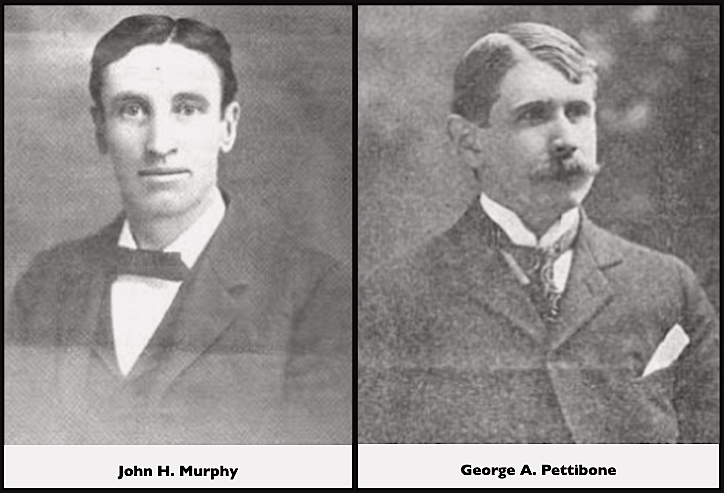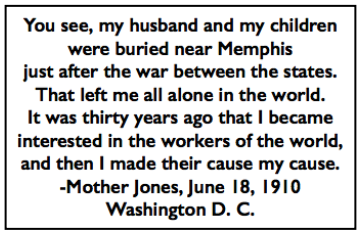 —————
—————
Hellraisers Journal – Wednesday September 14, 1904
Part II of III: “Mother Jones & Her Methods”-Then and Now
From the Boston Sunday Herald of September 11, 1904:
(FROM OUR SPECIAL CORRESPONDENT.)
NEW YORK, Sept. 9, 1904
Her Appearance and Her History
“Mother” Jones is an old woman, perhaps about 62 years of age. Her hair is white as snow, her eyes bright blue. She has a sweet, womanly mouth, and a pink flush in her cheeks. She is robust and healthy in appearance, with a good matronly figure. In dress she is quite plain, often almost shabby; though there is a neatness, almost a daintiness, about her which always gives her an agreeable appearance.
Her maiden name was Mary Harris. When she was a child of 10 she came to this country with her father and brother from Ireland. They lived for time in Provincetown, and afterward went to Canada. She was educated in the common and normal schools of Toronto, where her brother became a priest, and is now the dean of the archdiocese. She went to teach in a convent in Monroe, Mich., and later, going to Memphis, Tenn., to teach, she met an iron moulder, whom she married. They had two [four] children. She lost husband and children after a brief six years of married life in the yellow fever epidemic in the south.
After the war she went to Chicago, where she lived from 1867 until 1874, taking part in the relief work of the great fire as one of her first experiences in public work. She was a dressmaker in Chicago, as she was in San Francisco, where she lived for five years. In San Francisco she became interested in socialism, and took part in the anti-Chinese movement. When she returned East it was Mrs. George Pullman who secured her transportation. She had sewed for many women of wealth in Chicago, and had a large circle of friends among them.
Her life thus far had been comparatively simple. As a daughter she was obedient and studious, as a young woman a modest, retired teacher, as a wife, faithful and loving. She says of her married life that it was like that of most devoted wives. She wept if her husband drank a glass of beer after the day’s work or went to a union meeting at night. Yet she had enough intelligence to interest herself in his labor views, and imbibed her first notions of unionism from the protestations of her husband against her too devoted solicitude, and a great part of her effort in later years was to make women understand what she failed to understand in those early days, that the wife must care for what the husband cares for, and that every man loves freedom, even freedom from domestic tyranny.
Her remedy for lonely wives is a broader interest in the affairs of life. As a young widow she took pride in the trade she learned, and today she still loves to walk for an hour through the shops and look at beautiful silks and fine laces.
But though a good teacher and skillful dressmaker, it was not sufficient for this woman to provide for herself a good living and take no further thought of the world. She was aware that there were questions troubling the minds of men, and she wanted to help solve them. And somewhat later it came to her that she had the gift of eloquence. She discovered this in the old trades and labor assemblies in the West, where, when rising to take part in a discussion, a torrent of words would rise to her lips and her hearers would sit spellbound.
She belonged to the old Knights of Labor, and later took part in the organizing work of the American Railway Union, and became the friend of Eugene Debs. She was active in Chicago at the time of the Pullman strike, unmindful of the old-time friendliness of Mrs. George Pullman. Some years later she was able to secure a pardon for some of the men involved in the labor troubles of that great railroad strike by a personal interview with President McKinley at the White House.

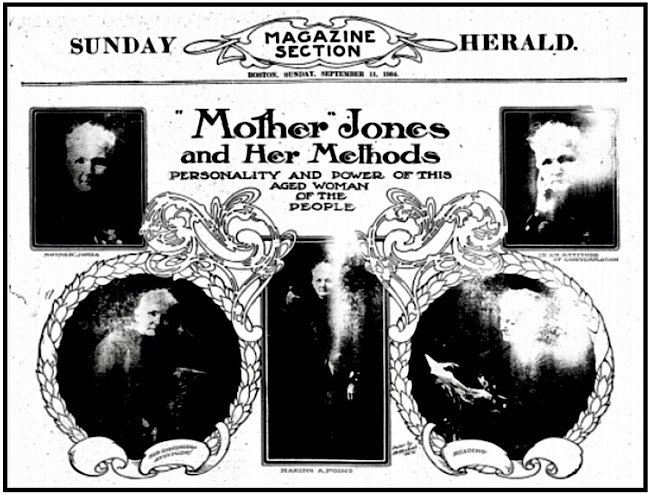
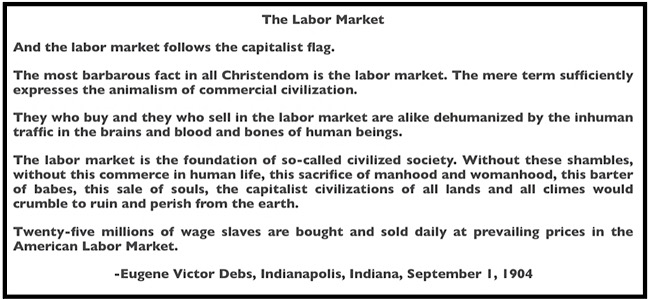 —————
—————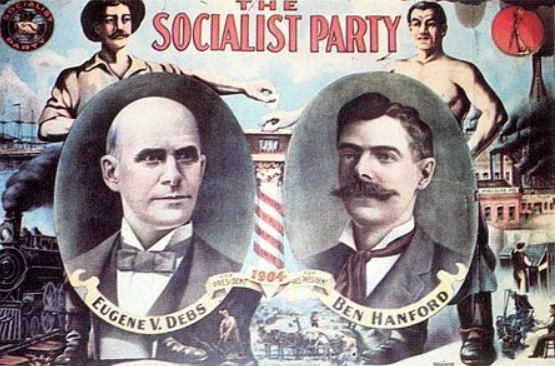
 —————
—————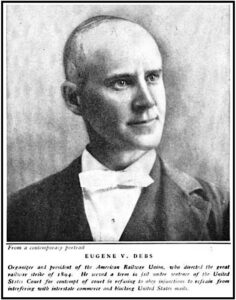
 —————
—————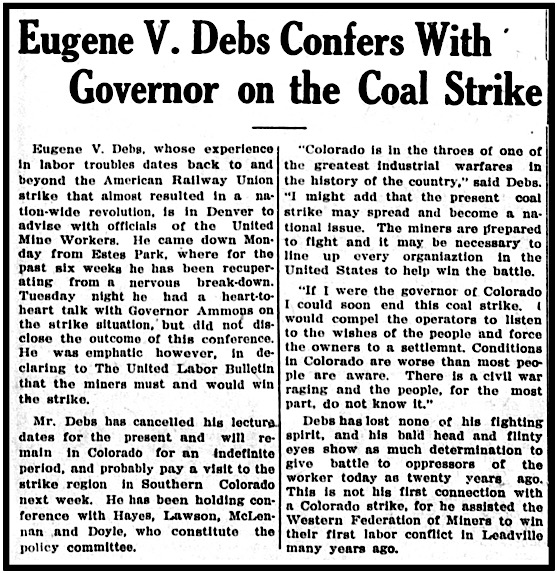
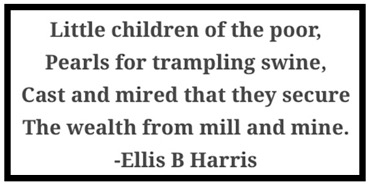 —————
—————
 —————-
—————-
 —————
—————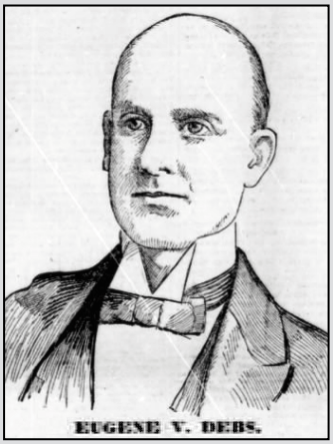 The socialist movement encountered a great shock at Buffalo a few days ago. One Quigley, a Catholic bishop, and another Stauffer (Stuffer?) of the Protestant persuasion, jointly and severally assailed social democracy, the latter gravely declaring that it was the “unhatched egg of anarchy”-in other words, a bad egg. The bishop vaulted into the arena, made due exhibition of his asininity, and in the name of the hierarchy proclaimed excommunication as the fate of all who cast their lot with the wicked socialists.
The socialist movement encountered a great shock at Buffalo a few days ago. One Quigley, a Catholic bishop, and another Stauffer (Stuffer?) of the Protestant persuasion, jointly and severally assailed social democracy, the latter gravely declaring that it was the “unhatched egg of anarchy”-in other words, a bad egg. The bishop vaulted into the arena, made due exhibition of his asininity, and in the name of the hierarchy proclaimed excommunication as the fate of all who cast their lot with the wicked socialists.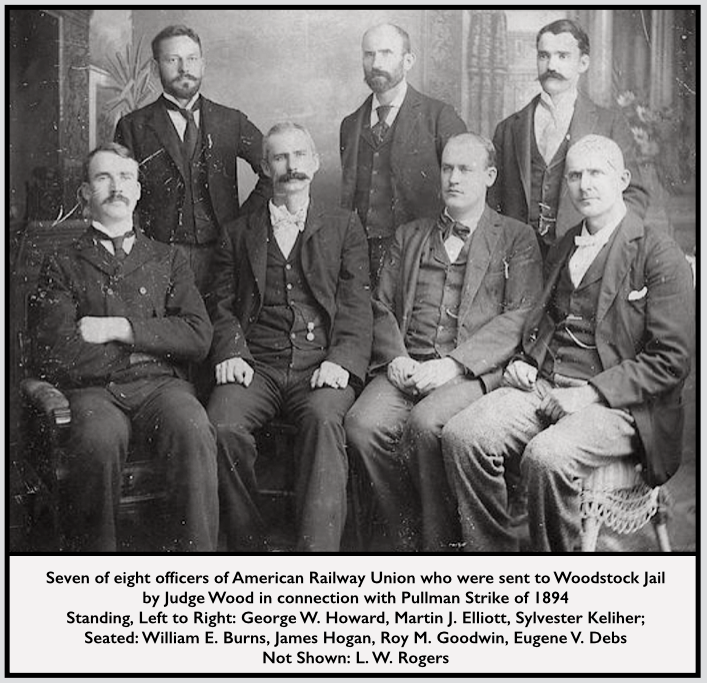
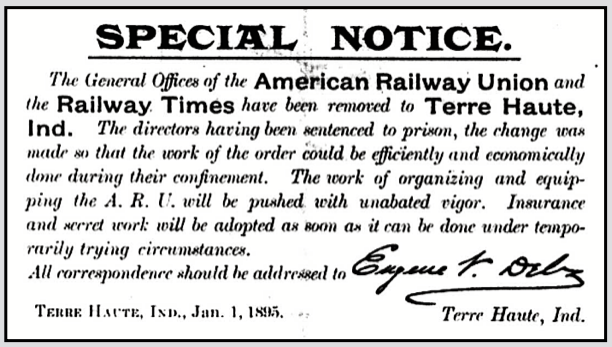
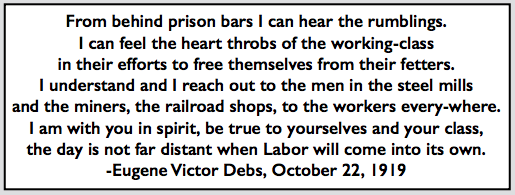 ———-
———-
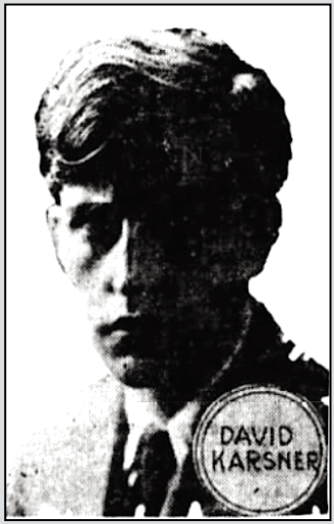
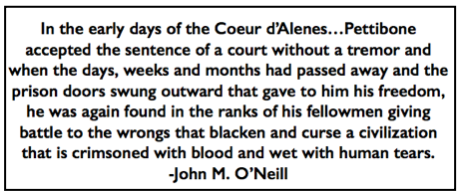 ———-
———-